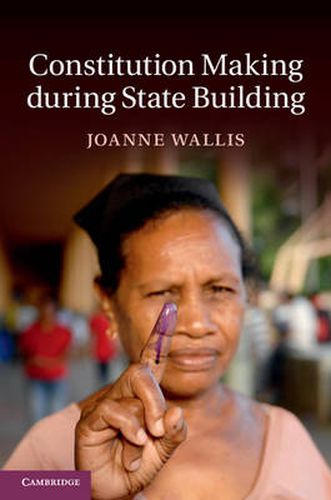Readings Newsletter
Become a Readings Member to make your shopping experience even easier.
Sign in or sign up for free!
You’re not far away from qualifying for FREE standard shipping within Australia
You’ve qualified for FREE standard shipping within Australia
The cart is loading…






How can fragmented, divided societies that are not immediately compatible with centralised statehood best adjust to state structures? This book employs both comparative constitutional law and comparative politics, as it proposes the idea of a ‘constituent process’, whereby public participation in constitution making plays a positive role in state building. This can help to foster a sense of political community and produce a constitution that enhances the legitimacy and effectiveness of state institutions because a liberal-local hybrid can emerge to balance international liberal practices with local customary ones. This book represents a sustained attempt to examine the role that public participation has played during state building and the consequences it has had for the performance of the state. It is also the first attempt to conduct a detailed empirical study of the role played by the liberal-local-hybrid approach in state building.
$9.00 standard shipping within Australia
FREE standard shipping within Australia for orders over $100.00
Express & International shipping calculated at checkout
How can fragmented, divided societies that are not immediately compatible with centralised statehood best adjust to state structures? This book employs both comparative constitutional law and comparative politics, as it proposes the idea of a ‘constituent process’, whereby public participation in constitution making plays a positive role in state building. This can help to foster a sense of political community and produce a constitution that enhances the legitimacy and effectiveness of state institutions because a liberal-local hybrid can emerge to balance international liberal practices with local customary ones. This book represents a sustained attempt to examine the role that public participation has played during state building and the consequences it has had for the performance of the state. It is also the first attempt to conduct a detailed empirical study of the role played by the liberal-local-hybrid approach in state building.